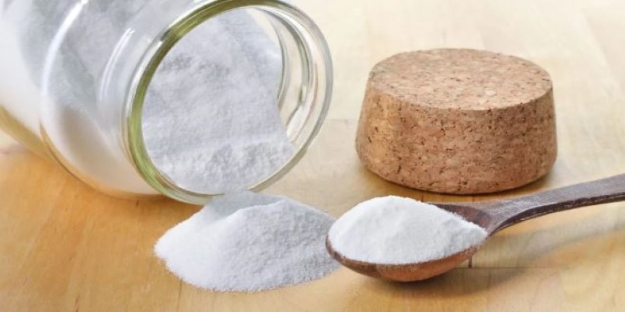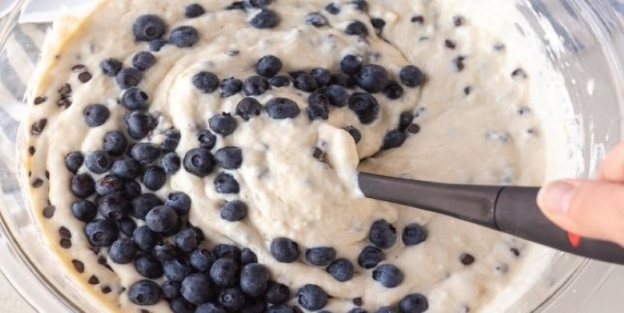Health & medical treatment
What’s Included In Preventive Health Care Services
1756721189000
Do your pancakes sometimes turn out flat, chewy, or unevenly cooked? Pancakes may look simple, yet achieving that perfect golden stack—soft on the inside and slightly crisp on the edges—can be tricky. Let’s walk through the process step by step and uncover practical tips that make all the difference in your breakfast game.
Do your pancakes sometimes turn out flat, chewy, or unevenly cooked? Pancakes may look simple, yet achieving that perfect golden stack—soft on the inside and slightly crisp on the edges—can be tricky. Let’s walk through the process step by step and uncover practical tips that make all the difference in your breakfast game.
Before fixing the problem, it helps to know what usually goes wrong. Flat or rubbery pancakes often result from overmixing the batter, using the incorrect ratio of ingredients, or cooking at the wrong temperature.
Some people use expired baking powder without realising it, which means the batter won't rise. Others flip the pancakes too soon or press down on them, squeezing out the air pockets that keep them fluffy. Once you understand the pitfalls, you can avoid them with a few smart habits.
Fluffy pancakes begin with basic ingredients, but the quality and proportions are crucial to achieving the desired texture.
All-purpose flour works best. Too much, and the pancakes turn dense; too little, and they fall apart. For lighter results, some cooks mix a bit of cake flour into the batter.

Baking powder is the key. Ensure it's fresh—test it by dropping a pinch into warm water; it should fizz immediately.
Eggs bind the batter and add structure. Separating yolks and whites, then whipping the whites before folding them in, makes pancakes rise beautifully.
Buttermilk gives a slight tang and reacts with baking powder for extra lift. If you don’t have it, add a teaspoon of lemon juice to regular milk and let it sit for five minutes.
Sugar adds a touch of sweetness, while melted butter enriches the texture and flavour.
So, how do you bring all those ingredients together? The mixing method is everything. Start by combining the dry ingredients—flour, sugar, baking powder, and a pinch of salt—in one bowl. In a separate bowl, whisk milk, eggs, and melted butter. Pour the wet mixture into the dry bowl and stir gently. The batter should look lumpy.
Overmixing develops gluten, which makes pancakes tough instead of fluffy. Think of it like folding rather than beating. If you want to take it a step further, whip the egg whites separately until soft peaks form, then fold them in at the end. This trick gives you cloudlike pancakes.
Even a perfect batter can fail if the pan is too hot or too cool. Medium heat is the sweet spot. Preheat your skillet or griddle for a few minutes before pouring any batter. To test, flick a few drops of water on the surface; if they sizzle and evaporate quickly, the pan is ready. Use a light coating of butter or oil, but avoid drenching the surface, as excessive fat can make pancakes greasy.
Cooking low and slow prevents burning while allowing the pancakes to rise fully. You’ll know it’s time to flip when bubbles form across the surface and the edges start to look set. Flip gently and let the other side cook for about a minute. Resist the urge to press down with a spatula—doing so deflates the pancake.
Everyone makes missteps, but minor adjustments can turn things around. Using old baking powder? Replace it, and you'll instantly see more rise. Batter too runny? Add a tablespoon of flour at a time until it thickens. Is the pan too cold?
The pancakes will spread too much and cook unevenly. Too hot? They'll brown before the centre cooks through. Timing matters too. Allowing the batter to rest for 5–10 minutes before cooking gives the flour time to hydrate, resulting in pancakes that are puffier and more tender.
Pancakes are versatile, but heavy add-ins can weigh them down. If you want blueberries, chocolate chips, or nuts, sprinkle them onto the batter once it's in the skillet rather than mixing them directly into the bowl.

This keeps the batter consistent and prevents clumps. Spices like cinnamon or nutmeg can be whisked into the dry mix without affecting the texture. A touch of vanilla in the wet mixture adds warmth and aroma.
Keep cooked pancakes warm in a low oven (around 200°F) on a baking sheet while finishing the rest of the batch.
Avoid stacking directly on a plate to prevent sogginess.
Serve with butter melting on top and warm syrup drizzled slowly.
Add fresh fruit, yoghurt, or a dusting of powdered sugar for a café-style presentation.
For a crowd, make a variety—plain, blueberry, banana, or chocolate chip—so everyone has their favourite.
What if your pancakes taste bland? Increase the sugar slightly or add more vanilla. Too dense? Check your baking powder or consider separating and whipping the egg whites.
Uneven cooking? Make sure your pan is level and heated evenly. Too dry? Reduce the flour a little and avoid overcooking. Once you pinpoint the cause, the fix is usually straightforward.
You might wonder if all this precision is necessary. After all, they’re just pancakes. But fluffy pancakes represent comfort food at its best. They turn a regular morning into something special, whether you’re cooking for family, friends, or yourself. There’s a reason pancakes have become a weekend tradition in so many households—they bring people together and start the day on a happy note.
So, what does it take? Fresh baking powder, careful mixing, the right heat, and a little patience. With these habits, you’ll no longer face disappointing stacks. Instead, every bite will be light, tender, and perfectly golden. The next time you’re standing at the stove with a bowl of batter, remember: the difference between flat and fluffy isn’t luck—it’s technique. And once you master it, you’ll be making pancakes people remember.
How do you like this article?
Health & medical treatment
1756721189000
Health & medical treatment
1756721189000
Health & medical treatment
1756721189000
Recipe & Gourment
1756721254000
Recipe & Gourment
1756721254000
Recipe & Gourment
1756721254000
shopping
1756721062000
shopping
1756721062000
Recipe & Gourment
1756721254000
Health & medical treatment
1756721189000
Recipe & Gourment
1756721254000










